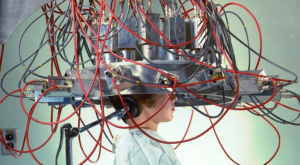Throughout history, attempts by mere mortals to plumb the inner recesses of the soul have been seen as hubristic. Shakespeare had Hamlet express this powerfully when he rages against those who “would pluck out the heart of my mystery”. He accuses Rosencrantz and Guildenstern of trying to play him like some kind of instrument, rather than treating him as a human being. “How unworthy a thing you make of me,” he chides.
Today, there are no such taboos. Hamlet refers to himself metaphorically as “this little organ” but now we dissect the self by studying a very literal organ: the brain. Neuroscientists are trashing the long-held view that what lies deep inside can only be seen from within.
A new exhibition at the Francis Crick Institute, chirpily titled Hello Brain!, celebrates this desecration of the psyche’s inner sanctum, revealing the many ways in which the institute’s researchers have lifted the lid on the mind.
The Crick’s researchers have found that the brains of mice change in pregnancy, suggesting that the maternal instinct is not solely a spiritual calling but a neurochemical imperative. Another lab’s work on mice supports the emerging scientific consensus that we hallucinate more than we think. Other Crick scientists have studied how birds learn new songs in their sleep, suggesting that the unconscious mind is more important for learning and memory consolidation than we tend to believe.
Mysterious skull of an enormous sea creature washes up on a California beach (photos)
This is surely fascinating, but do not be lulled by the breezy tone in which the exhibition delivers such discoveries. As the mafioso Henry Hill says in Goodfellas, “your murderers come with smiles.” These wonderful revelations threaten to destroy cherished beliefs about who and what we are. Call it the existential brain drain: the more we understand the brain, the more our comforting views about ourselves go down the drain.
Continue here: The Telegraph
Ask me anything
Explore related questions





